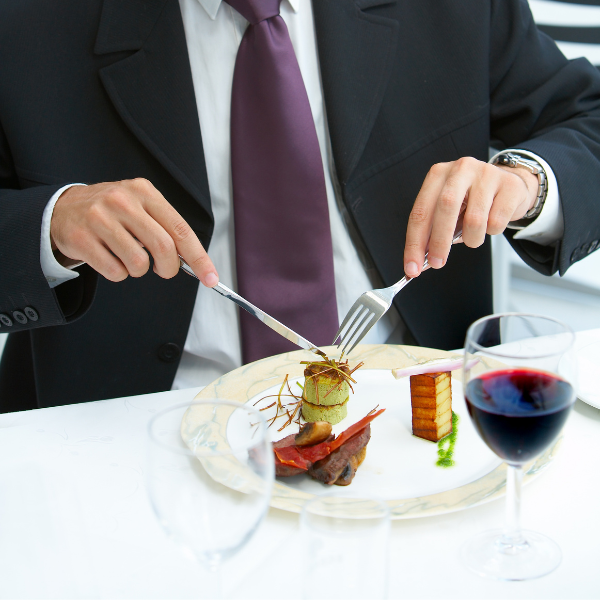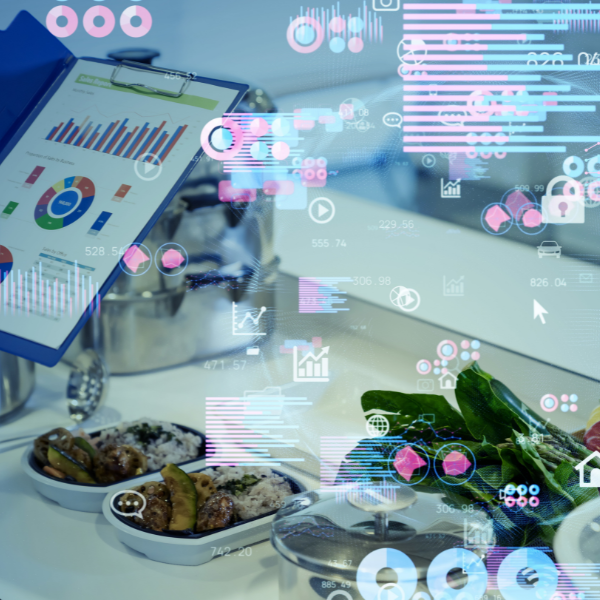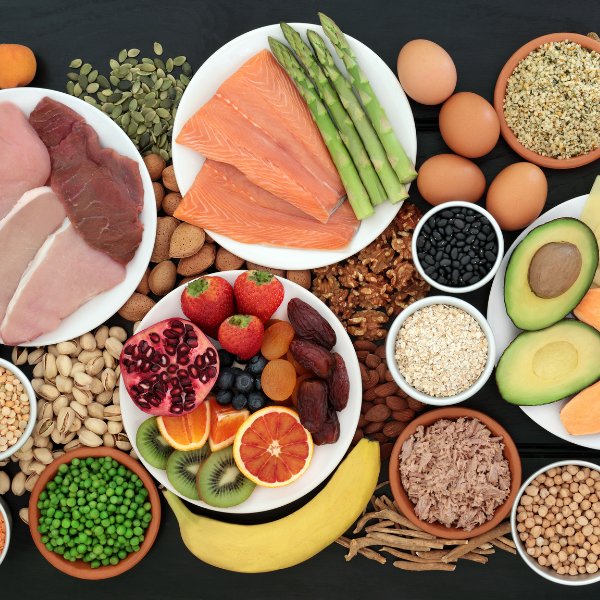Cross-contamination occurs when harmful microorganisms are transferred from one surface or food item to another. It can lead to foodborne illnesses and should be prevented to ensure food safety. Here are some tips on how to prevent cross-contamination: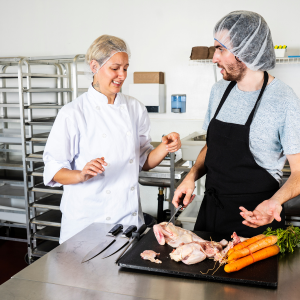
Cook Food To The Appropriate Temperature
Don't take chances with potential bacterial threats – make sure your meals are cooked to perfection by testing the temperature with a digital thermometer. Ensuring that food is cooked at an ideal heat kills any lurking bacteria, delivering safe and delicious dishes every time.
Clean & Sanitize Surfaces
Ensure your kitchen is completely safe for food preparation by giving all surfaces and utensils a thorough clean with hot, soapy water. Finish off the job to guarantee maximum hygiene – apply an antibacterial sanitizing solution on top of everything.
Wash Kitchen Utensils After Each Use
Kitchen utensils should always be washed with care. Neglecting to do so can pose a serious risk, as foodborne illnesses caused by harmful bacteria could quickly spread from unwashed dishes and tools. To prevent cross-contamination and protect yourself and others in the kitchen, take time after each use to keep everyone safe through proper cleaning.
Wash Fruits & Vegetables
Before you bite into that scrumptious apple or whip up a delicious meal, make sure to give your fruits and vegetables a thorough rinse under running water. Enjoying clean produce will leave you with peace of mind.
Avoid Touching Your Face Or Hair
Keep your hands away from your face and hair when prepping food, doing so can spread harmful bacteria to the meal you’re creating. Be sure to keep yourself – and those around you, safe.
Use Disposable Gloves
When you're getting ready to cook your next meal, don't forget the power of gloves! Wearing disposable gloves when handling raw items like meat, poultry, fish, or eggs can keep dangerous cross-contamination at bay and help guarantee an enjoyable eating experience.
Use Different Supplies For Raw & Cooked Food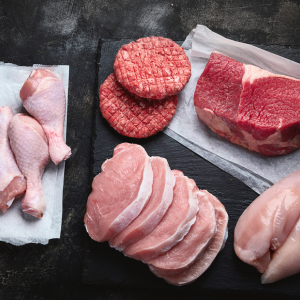
Using different supplies for raw and cooked food is an important practice in the kitchen to prevent cross-contamination and ensure food safety. To help avoid the spread of harmful bacteria, it's essential to use separate cutting boards, utensils, and dishes for raw meat, poultry, fish, and vegetables. Color-coded cutting boards make keeping track easy – plus, they look pretty cool! Also, be sure all plates are washed thoroughly before transferring cooked food onto a dish that previously held raw ingredients. Keeping surfaces clean is essential for preventing the transfer of harmful bacteria.
To ensure your kitchen remains safe and healthy, remember to use different towels when drying hands, washing dishes, or wiping down countertops; store raw foods separately from cooked items in separate airtight containers within the fridge; and make sure all supplies coming into contact with food are both cleaned using hot soapy water then sanitized using a specialized solution. Using different supplies for raw and cooked food can prevent cross-contamination and ensure that the food you prepare is safe to eat.
Practice Good Personal Hygiene Habits
If employees don't maintain proper hygiene, foods can easily become filled with bacteria. One of the most common hygiene practices in every kitchen is for employees to wash their hands after handling raw food products and using the restroom. However, there are a number of other personal hygiene rules that need to be followed to prevent cross-contamination:
- Wear clean clothes, hairnets, beard nets, and aprons
- Do not wear jewelry while handling food
- Use disposable gloves and change them when handling new food items
- Do not work if you are sick
- Cover wounds when working in the kitchen at all times
Should I Wash Raw Meat
Washing raw meat can spread harmful bacteria and pathogens to other surfaces in your kitchen, putting you and your family at risk of foodborne illnesses. When we wash raw meat, we may believe we are removing dirt and bacteria from the surface. In reality, the water droplets that splash from the meat can land on nearby surfaces, spreading bacteria around the kitchen. This is especially true for poultry, which can be a major source of Salmonella and Campylobacter, two of the most common causes of food poisoning.
To reduce the risk of foodborne illnesses, it is best to avoid washing raw meat and instead cook it immediately after removing it from its packaging. Cooking raw meat to the correct temperature can destroy harmful bacteria and pathogens, making it safe to consume.
Should I Wash Raw Chicken?
When it comes to food safety, the debate of whether to wash raw chicken has been going on for some time. While some people believe washing chicken before cooking is necessary to remove any bacteria, others argue that it increases the risk of contaminating kitchen surfaces and utensils. So, should you wash raw chicken?
The United States Department of Agriculture (USDA) recommends against washing raw chicken. According to the USDA, washing raw chicken can spread harmful bacteria, such as campylobacter and salmonella, to kitchen surfaces, utensils, and other foods. These bacteria can survive on surfaces for up to four hours, increasing the risk of cross-contamination.
Moreover, bacteria on raw chicken will be killed during cooking at a temperature of 165°F (74°C). Therefore, washing chicken is unnecessary as long as you cook it thoroughly. Washing raw chicken can increase the likelihood of foodborne illness.
Stop The Spread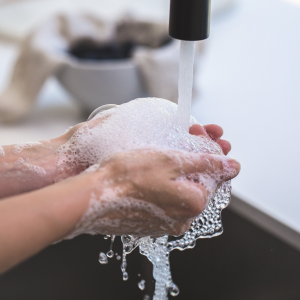
Preventing cross-contamination is essential for maintaining a clean and safe kitchen and ensuring food safety. By following simple steps such as using separate cutting boards, utensils, and dishes for raw and cooked food, storing food properly, washing kitchen utensils after each use, and not washing raw meat. You can reduce the risk of harmful bacteria and prevent the spread of foodborne illnesses. It's important to always follow food safety guidelines and best practices to ensure your kitchen is healthy and safe for cooking and preparing food. With these tips, you can keep your kitchen clean, food safe, and protect the health of yourself and your loved ones.




